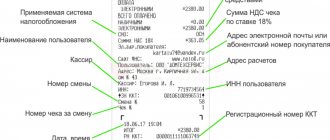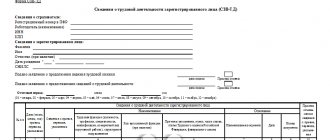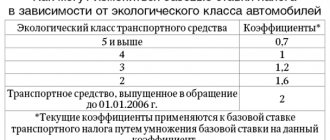According to the previous rules, the simplified debt collection procedure was applied to debts of no more than 25,000 rubles (Part 1, Article 9 of the Federal Law of October 2, 2007 No. 229-FZ “On Enforcement Proceedings”). From January 8, 2021, this threshold will increase to RUB 100,000. The corresponding amendments to the specified norm of Law No. 229-FZ were made by Federal Law No. 539-FZ of December 27, 2018.
No more than 50 percent of wages and other income can still be withheld from the debtor’s income (the restriction does not apply to alimony, compensation for health damage and a number of other debts). In all cases, the employer is obliged (and the employee does not have the right to interfere with the employer) to withhold from the salary the amounts indicated in them.
So, the employee received a writ of execution. What to do next? It seems that everything is not difficult. First, register and at the same time send a notification by mail to the bailiff or other claimant about receipt of the documents. Then you need to withhold money from the employee from the next salary. The accountant is not obliged to inform in advance, much less obtain the debtor’s consent to the withholding. After full repayment of the debt under IL, do not forget to return the writ of execution with notes on the deductions and transfers made to the bailiff with a covering letter. Keep copies of all documents for yourself - “just in case.”
Accountant's work with writs of execution
The first stage of writing off debt by bailiffs is drawing up a writ of execution and submitting it to the accounting department of the organization where the citizen conducts his work. The document is transferred to the person responsible for the work of the department or the immediate manager of the company (small enterprises, especially individual entrepreneurs, may not have an accountant.
The process of working with writs of execution consists of the following actions:
- checking the correctness of the contents of the document and its authenticity;
- registration of the writ of execution in the internal accounting of the organization;
- sending notifications to interested parties.
Alimony and other deductions in one line
Executive documents have a certain order.
First of all, they collect : alimony, compensation for damage to health, damage to persons who have lost their breadwinner, and also compensation for moral damage.
Secondly, they collect: claims related to payments to the budget (fines, taxes).
In the third place, all other claims are collected.
Debts under several enforcement documents of the same queue must be held simultaneously. The total amount of collection will be determined based on whether the total amount of monthly deductions for all sheets falls within the limit established by law.
If the amount of all monthly deductions under writs of execution is less than the limit, the debt will be collected in full.
If the amount of monthly deductions exceeds the limit, then the debts are withheld in proportion to the amount for each writ of execution.
Checking the writ of execution
Before registering a writ of execution, the accountant must check it for falsifications and errors. This rule applies to any documents. The contents of the sheet sent by the bailiffs must include the following information:
- details of the judicial institution where the sheet was issued (full name, address, contacts);
- Full name and position of the person who compiled the document;
- details of the court case (registration number, date of commencement of proceedings and date of verdict);
- a summary of the decision made by the court;
- date of entry into force of the verdict;
- date of issue of the sheet from the file;
- Full name and other details of the citizen who is the debtor;
- signature with transcript and position of the employee who compiled the document.
Employer Responsibilities
The employer must execute the document presented and register it. If the sheet was sent by a bailiff, notify of receipt. The accountant must make deductions and transfer them to the account specified by the collector without delay. The company's problems with a lack of funds are not grounds for delaying the payment of alimony. Otherwise, the company is fined a large amount.
This you need to know: Application to the court for installment payment under a writ of execution
Sending notifications
The employer must send written notifications of the fact of receipt of the writ of execution to:
- the employee in whose name the document is issued;
- the bailiff service employee responsible for the debt collection process;
- to the citizen or organization in whose favor the debt is written off.
IMPORTANT:
An accountant or other responsible employee is only obliged to notify the debtor of receipt of the writ of execution. He is not required to inform him of each upcoming withholding of income.
What amount are they entitled to withhold?
The amount of deductions varies according to different documents.
For alimony workers, it depends on the number of children (parents) for whom maintenance is paid: 1–25%, 2–33%, 3 or more – 50%. The exception is the formation of debt for the maintenance of minors. For the period until the resulting debt is repaid, it is allowed to withhold no more than 70% of income.
Also, up to 70% can be recovered as compensation for harm to life or health or damage caused by a crime.
Hotline for citizen consultations: 8-800-350-57-94
Return of the writ of execution
The copy of the writ of execution received by the accountant is stored during the entire period when the debt is collected from the debtor. As soon as the employer stops writing off money, he will be required to send a copy back to the local FSSP office. This should be done if:
- the debt has been paid in full;
- the employment contract between the citizen and the organization was terminated;
- the claimant filed an application to revoke the sheet;
- a resolution was received from the bailiffs, according to which the FSSP terminates the enforcement proceedings.
The time allotted for returning the document is limited. The organization is obliged to return the sheet no later than the next day from the date of its receipt (excluding weekends). For example, if the reason for the return appeared on Thursday, then the sheet must be returned on Friday. If the document was received on Friday or Saturday, then the deadline for return is Monday.
What happens to the document if an employee is fired?
A writ of execution is one of the types of enforcement documents; it is issued on the basis of a decision, ruling or court order. It contains data from the operative part:
- name of the judicial authority;
- case number;
- dates of the decision, issuance of the sheet, entry into force;
- the demands presented to the defendant (in this case, he is the employee);
- an excerpt from the decision (the text must strictly coincide with the court’s conclusions about the satisfaction of the claim in full or in part, and contain information about the procedure and amounts to be recovered);
- details of the parties to the case (full name, date and place of birth, registration address - details of an individual, full name of the organization, TIN, date of registration - details of a legal entity);
- document number and series.
A writ of execution is issued only by the court on the basis of an application for the issuance of this document. It can be sent to the bailiff department or handed over to the claimant, his representative by proxy, so that he can present it to the debtor’s employer for execution.
It is also necessary to provide an application containing the data of the claimant and, necessarily, bank details for transferring deductions.
Once the employer has received a writ of execution, you need to:
- notify the bailiff of receipt of the document (if notification was sent);
- register the writ of execution in a special journal for registration of such documents;
- ensure its safety.
According to Federal Law No. 229 “On Enforcement Proceedings,” when dismissing an employee, the employer is obliged to return the writ of execution with notes on what grounds the execution was terminated, during what period it was carried out, and what amounts were collected.
This must be done no later than the working day following the day of dismissal. Within the same period, it is necessary to notify the bailiffs and the collector about the dismissal of the debtor, indicating the amount of deductions made.
Responsibility
If the organization that is the debtor’s employer fails to fulfill the statutory obligations to work with writs of execution, then the responsible employees will be held criminally liable in accordance with Art. 315 of the Criminal Code of the Russian Federation (director and officials). According to this article, the following penalties may be used for such crimes:
- a fine of up to 200 thousand rubles. or equal to the average earnings for a period of up to 18 months;
- disqualification from a certain type of activity for up to 5 years;
- compulsory work lasting up to 480 hours;
- correctional labor for up to 2 years;
- arrest for up to 6 months;
- conditional or real imprisonment for up to 2 years.
Separate penalties are provided for failure to comply with deadlines for returning writs of execution. According to Part 3 of Art. 17.14 of the Code of Administrative Offenses a fine is imposed for a violation:
- up to 2 thousand 500 rub. – for citizens;
- up to 20 thousand rubles. – for employees responsible for performing their duties;
- up to 100 thousand rubles. – for organizations.
Employee income that cannot be levied
According to Article 101 of Law No. 229-FZ, collection cannot be applied to the following types of income:
- amounts paid in compensation for harm caused to health*;
- amounts paid in compensation for damage in connection with the death of the breadwinner;
- amounts paid to persons who received injuries (wounds, injuries, concussions) in the performance of their official duties, and members of their families in the event of death of these persons;
- compensation payments from the federal budget, budgets of constituent entities of the Russian Federation and local budgets to citizens affected by radiation or man-made disasters*;
- compensation payments from the federal budget, budgets of constituent entities of the Russian Federation and local budgets to citizens in connection with caring for disabled citizens;
- monthly cash payments and (or) annual cash payments accrued in accordance with the legislation of the Russian Federation to certain categories of citizens (compensation for travel, purchase of medicines, etc.);
- amounts of alimony , as well as amounts paid for the maintenance of minor children during the search for their parents;
- compensation payments established by the labor legislation of the Russian Federation:
a) in connection with a business trip, transfer, employment or assignment to work in another location;








